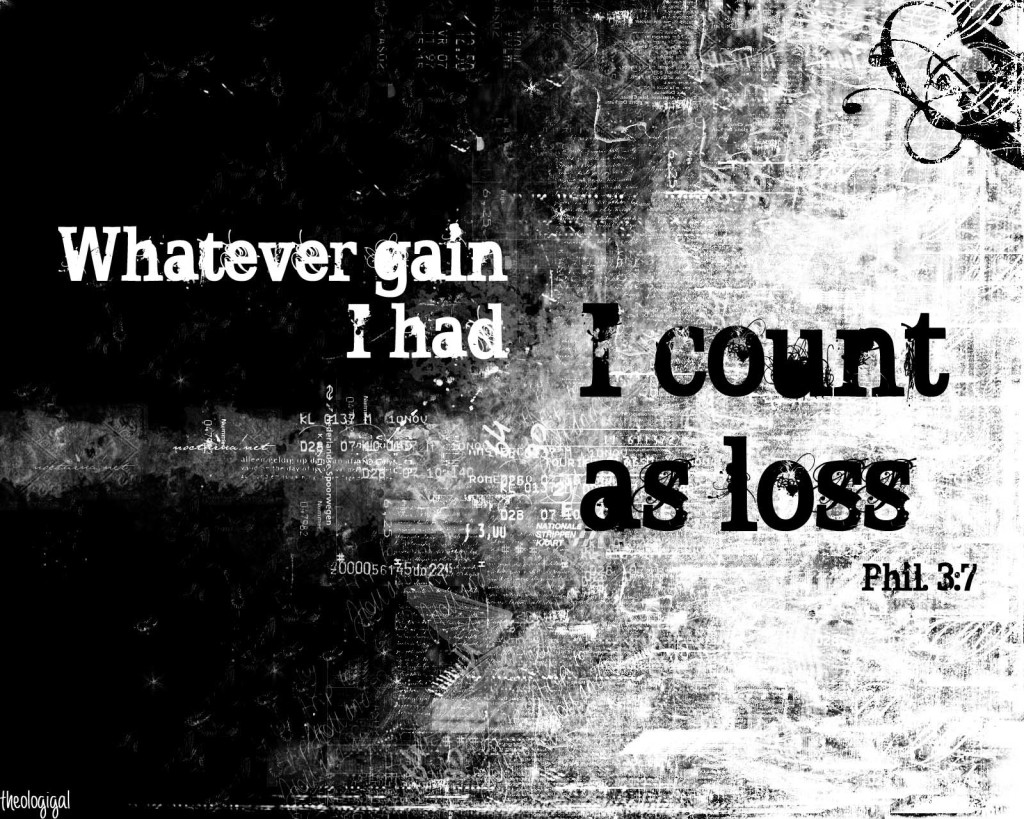Loss.
It’s something we all face at some time in our life. Actually, several times in our life.
Loss is hard.
Loss of identity or sense of self is difficult.
Not so terribly long ago, I settled into a belief in God. I came to believe that He is who He says He is. I came to believe that scripture was truth. I came to believe that He truly gave his son Jesus to die on the cross for the forgiveness of sins. I became a Christ-follower.
But not with great enthusiasm.
In fact, I would have to echo C.S. Lewis’ words on his own experience of coming to that settled believe. He wrote the following in his book “Surprised by Joy”:
In the Trinity Term of 1929 I gave in, and admitted that God was God, and knelt and prayed: perhaps, that night, the most dejected and reluctant convert in all England. I did not then see what is now the most shining and obvious thing; the Divine humility which will accept a convert even on such terms. The Prodigal Son at least walked home on his own feet. But who can duly adore that Love which will open the high gates to a prodigal who is brought in kicking, struggling, resentful, and darting his eyes in every direction for a chance of escape?
I get those words. I truly do. And I am so thankful for that Love that welcomes even those of us who are brought in “kicking, struggling, resentful and darting his eyes in ever direction for a chance of escape…” Yes. I love my God, for many reasons. This is one of them.
I’d love to say that in the wake of coming to this settled belief and repentance that I wholeheartedly embraced the joy that Christianity brings. That all of a sudden, everything was right in the world. I wish I could say that I instantly “turned over a new leaf”, or no longer desired the things of this world. That my refuge was instantly found in Him.
I’d love to say that, but I can’t.
Truth is, I missed the “old me”.
Why is that? The old me was a mess; a wreck. The old me was caught up in grievous sin. The old me was terrified.
But, she was also “strong”. Independent. Funny. Didn’t need anyone or anything. And, she was used to who she was. And the way she had ordered her world. And there was great comfort in that.
And I missed it. And I grieved.
I had not yet learned the surpassing joy of knowing Christ. I had not yet learned that He is worth far more than anything that I had ever counted as value in my life. The “good” things according to the world’s standards, and the not good things, too, that I loved. Like drinking too much. Like stoicism. Like cynicism. Like ______. Fill in the blank.
In Philippians 3:7-11, Paul says this:
Pay close attention to verse 8—I count everything as loss because of the surpassing worth of knowing Christ Jesus my Lord.
Knowing Jesus is worth far more than anything. Knowing Jesus is worth far more than anything.
But I didn’t know that immediately. That took time. How do you get to know someone? Through time spent with them. And through sharing in their sufferings, such as is addressed in verse 10.
And, through the loss of self; and not just self, but all things. Does this mean we must lose the things we hold most dear to our souls? Our spouses? Our children? Our friends? Our homes? Our careers? Our health? Our dreams? Our very life?
Maybe. Maybe, and yes. John Piper puts it like this:
That is, we will hold things loosely, share things generously, and ascribe value to things in relation to Christ. We will seek to live the paradox of 1 Corinthians 7:30–31, “Let [Christians] buy as though they had no goods, and those who deal with the world as though they had no dealings with it.”
“Too hard!!”, we cry. “I can’t be expected to give up those things!”, we lament. But, these things can not be our joy, for they are not the source of our joy. Yes, we derive joy from them. Oh, we derive great joy from them! But if we can’t look past them to the source of that joy, which is Christ Jesus, then we are not fully grasping joy the way we are intended to. Instead, these very good things can become very big idols. And, then, when we experience the loss of them, we will grieve without hope, because when these things are idols–spouses, children, cars, property, careers, friends, health, goals, even self–they are not born of true joy.
God longs to give good gifts to His children. Matthew 7:11 assures us of that. But those gifts are meant to reflect His glory. And, when they become the object of our praise and desire, they do not reflect His glory.
There is a reason why Paul urges us in Philippians 3:17, just a few short verses after the above passage, to “join in imitating him (Paul)”. It is because Paul knows. He knows what loss is. And, He knows the surpassing, surpassing worth of knowing Jesus. Paul shared in Christ’s sufferings. He knew the futility of possessing a “righteousness of his own” (see Phil. 3:4-6) and the value of righteousness that “comes through faith in Christ, the righteousness from God that depends on faith.”
Count it all loss. Surpassing worth of knowing Christ Jesus my Lord. This, right here, is not nothing.

